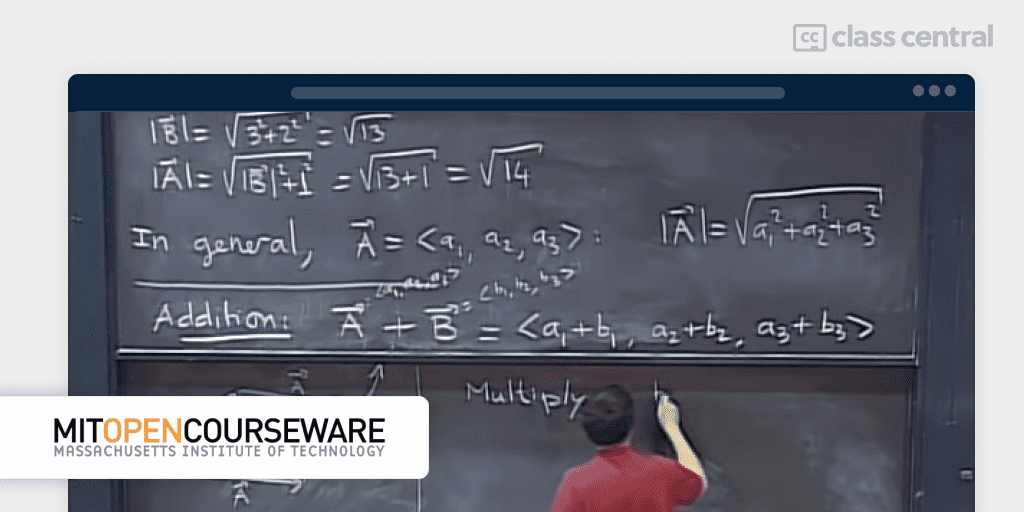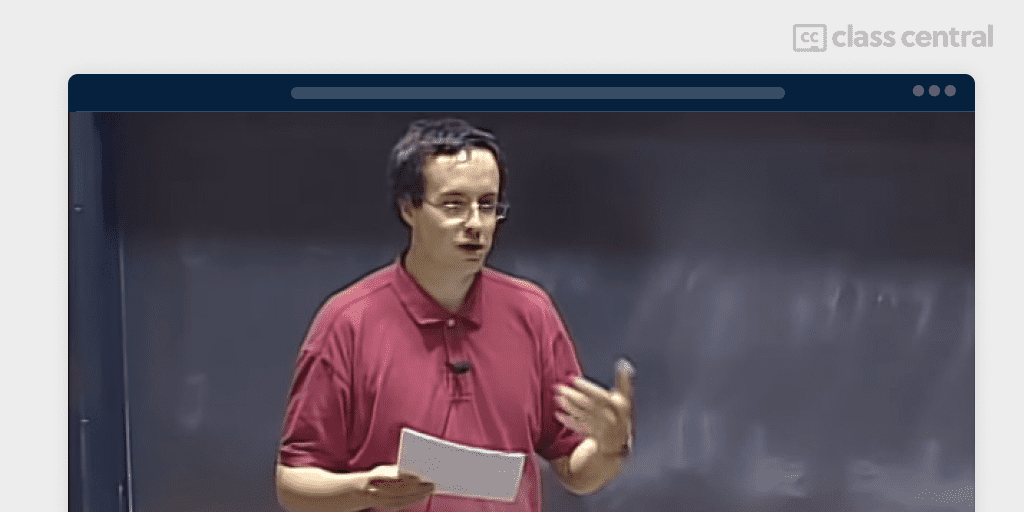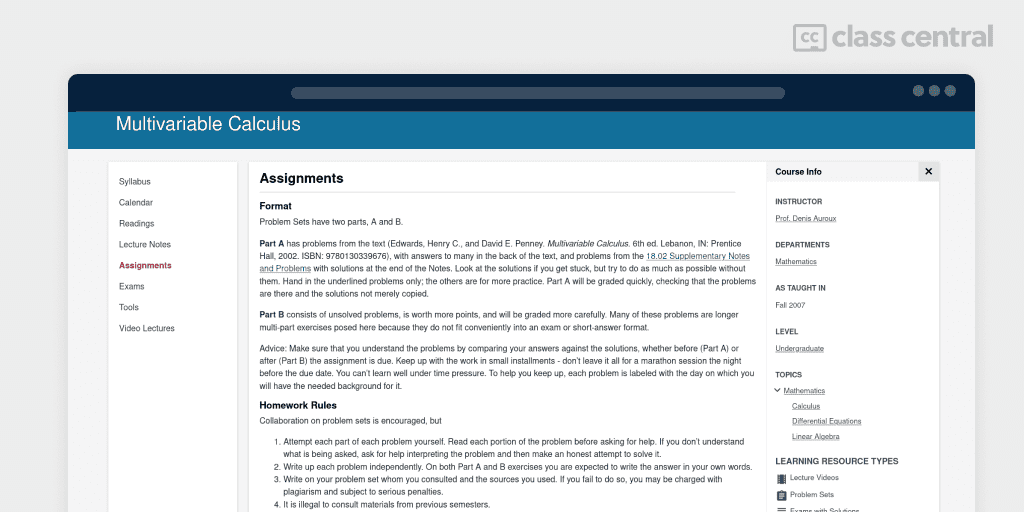MIT’s Course Review: Multivariable Calculus
Have fun learning Calculus in this free online course from MIT OpenCourseWare with great lectures and problem solving exercises.

Mathematics was never something I loved, even though I have loved physics for a long time and am pursuing a bachelor’s degree in Electrical Engineering. Maybe it was the way I was taught and introduced to mathematics in school. I felt bored while studying mathematics until I finally joined my undergrad classes. It was the COVID era (early 2021); we were all locked in our houses, and classes were completely online. I wanted to try and change my relationship with math, and while browsing through the courses available online on Class Central, I came across Multivariable Calculus on MIT OpenCourseWare (MIT OCW 18.02).
Instantly, I wanted to give it a shot and see what it’s like to learn from the professors at a world-class institute. I played the first video of the course on YouTube and was hooked! I took 9 days to finish the entire course—it was binge-worthy! The excitement I felt while learning from the course was something I had never felt before.
The Course

The course MIT OCW 18.02 is taught by Prof. Denis Auroux. He’s a magician, quite literally, when it comes to teaching and helping students get an intuitive understanding of the subject. Though the course is titled “Multivariable Calculus” and might sound complicated, it starts from the very basics, and if you have taken high school-level calculus, it would be a smooth journey through the course with Prof. Denis guiding and training your intuition in the right direction.
The course includes the following topics in order and follows pretty much the standard syllabus for an undergraduate-level course on Multivariable Calculus:
- Basics of Vectors and Matrices
- Partial Derivatives and their applications
- Gradients, Lagrange Multipliers and Simple Partial Differential Equations
- Double Integrals and Change of variables
- Vector Fields, Path Independence and Green’s Theorem
- Triple Integrals and Divergence Theorem
- Line integrals in space, curl, exactness, and potentials
- Stokes’ theorem
Lectures and Exercises

The lectures available consist of good theory and applet-based demonstrations of complicated math stuff. Along with the lectures, the problem sets available on the OCW website for the course were quite helpful for me in getting a better grasp of the coursework. Those problem sets not only helped me to get a better understanding but also helped me to assess my understanding of the subject. It helped me keep away from the tutorial hell, a condition where you keep going down the hell of learning from tutorial videos one after another without actually grasping anything significant from them.
There are also practice exams available on the website that helped me prepare for my semester exams.
Time Requirement
The time required to complete this course actually depends a lot on you, but I would say 2 months is ideal, considering the time required to practice the problem sets and exams. If you are in a rush and have a major exam rushing towards you, you can still finish the stuff up in around 9-10 days given you get addicted and dedicated. I guarantee that though the journey will be difficult, it’ll be fun.
Conclusion and Way Ahead
Taking MIT OCW 18.02 was one of the best decisions I have ever made. I love mathematics now and am planning to change my major in grad school to physics from engineering. This course gave me the confidence I needed to make such a major decision. I have always loved physics, but math was what always restricted me a bit mentally. But after this course, I have enough confidence to take math classes at a higher level. I have taken several other, much more difficult and mathematically demanding courses after this.
I would recommend anyone at the university level or maybe even at the high school level who’s in any way related to math take this course. Maybe it’ll change the way you see the subject. I just have one regret: that I didn’t find this course early enough.






